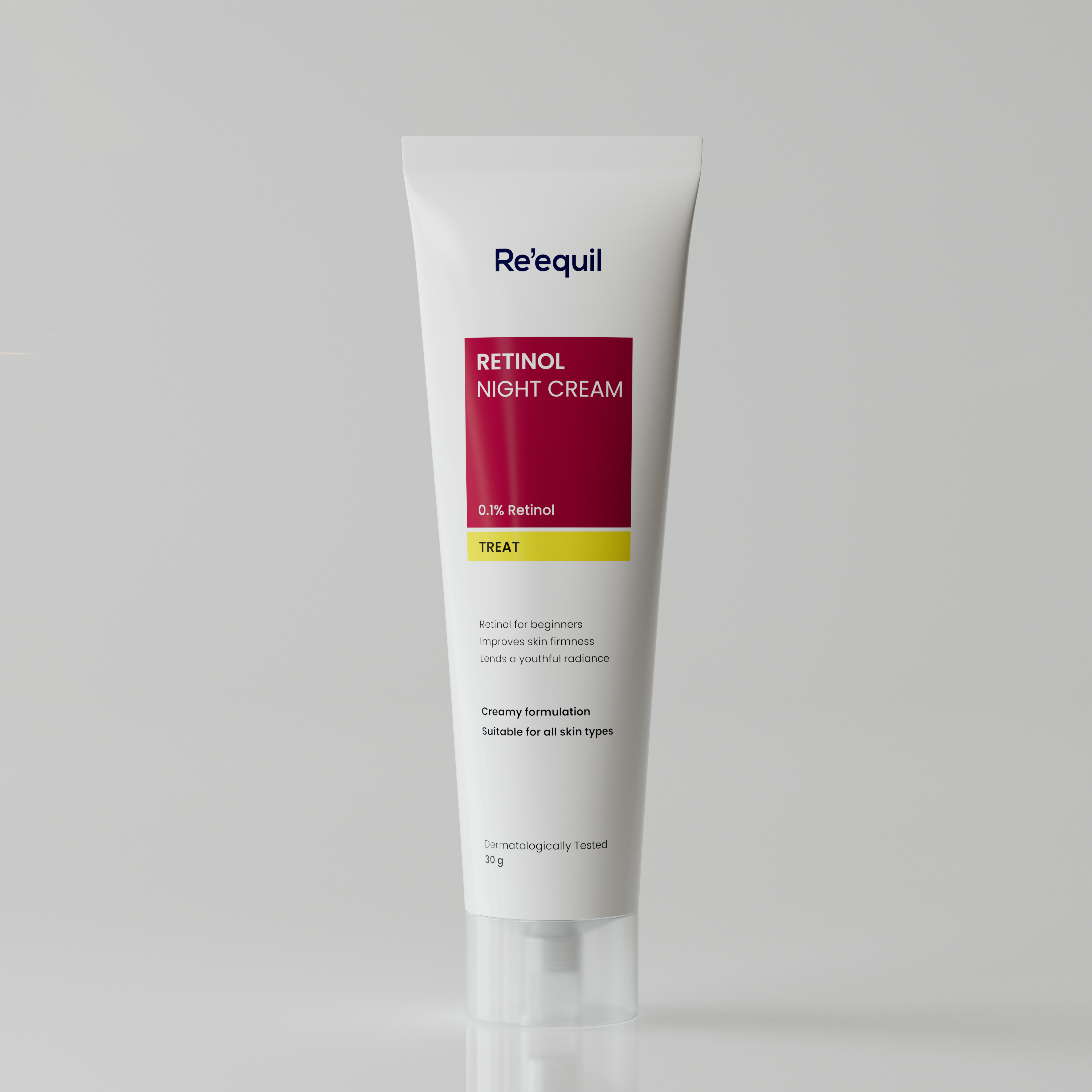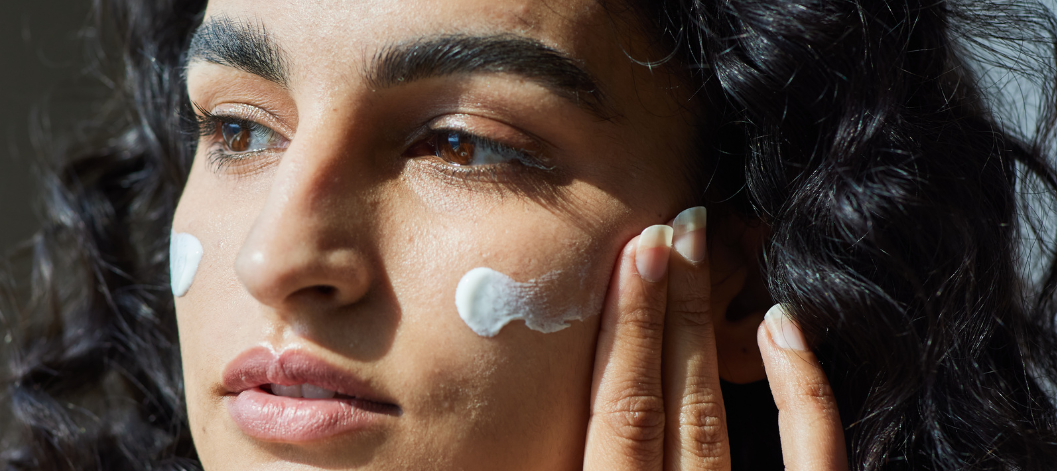Pairing Retinol with other skincare ingredients can be tricky.
Retinol, in itself, is a potent ingredient and is known for its adverse effects such as purging, dryness, etc.
On top of it—layering another strong antioxidant with it such as Vitamin C—raises various questions such as how to use them together and that too, effectively.
In this post, we will answer all your questions about using Retinol and Vitamin C together.
Vitamin C and Retinol: A quick introduction to each
Vitamin C and Retinol are active skincare ingredients.
Meaning, they are formulated to target specific skin concerns.
For example, Retinol is well-known for its anti-ageing properties.
Whereas, Vitamin C is known for boosting collagen production, and protecting the skin against sun damage.
Although Vitamin C and Retinol do have common benefits, such as anti-ageing and reducing dark spots—both are quite different from each other.
From formulation to potency—the difference is apparent.
Vitamin C
Vitamin C is the most abundant antioxidant in human skin, according to a 2017 study.
It protects your skin cells from the harmful effects of free radicals.
Free radicals are the molecules produced when the skin is exposed to sun rays or other sources.
Since the human body cannot produce Vitamin C—we rely on diet.
However, humans cannot synthesise Vitamin C due to the lack of L-Gulono-gamma-lactone oxidase.
So no matter how much Vitamin C you get from your diet, only a fraction of it will be available in your skin.
Another way of consuming Vitamin C is through topical applications.
L-ascorbic acid (LAA) is the most stable form of Vitamin C you can get in a skincare product.
Topical Vitamin C (LAA) has a wide range of benefits for the skin such as preventing wrinkles and fine lines, reducing the appearance of pigmentation, and protecting the skin against UV rays.
Retinol
Retinol is a form of Vitamin A, which is the first-ever Vitamin approved by the Food and Drug Administration as an anti-ageing agent.
Retinol is quite stable and well-tolerated if used in the right concentration.
It increases collagen production and promotes the production of new blood vessels in the skin, both actions help in delaying ageing and improving skin colour.
Retinol also regulates melanin production. Uneven melanin distribution can cause dark spots.
According to a study, Retinol is approved for the treatment of acne.
Retinol has anti-inflammatory properties, making it an effective topical treatment to target acne and hyperpigmentation.
Should I use Vitamin C with Retinol?
Yes, you can use Vitamin C with Retinol.
“This combination is effective in treating hyperpigmentation, fine lines and wrinkles, and photoaged skin,” says Dr. Aseem, MD - Dermatology.
A study tested the effects of topical Retinol and Vitamin C on photoaged skin (when the sun prematurely ages the skin).
11 volunteers applied the combination of Retinol and Vitamin C—twice daily for 6 months.
Volunteers experienced increased collagen production and significant improvements in damage caused by sun exposure.
Another 2016 study says that the combination of Retinol and Vitamin C helps reduce mild-to-moderate hyperpigmentation and photodamaged facial skin.
44 women enrolled in the study—for 12 weeks they applied a Retinol cream and a moisturiser containing Vitamin C.
Are there any side effects of using Retinol with Vitamin C?
There is no straight answer to this. It basically depends on your skin type and your previous exposure to Retinol or Vitamin C.
As you may know, Retinol can initially dry out the skin and even cause skin purging. Similarly, Vitamin C can also cause dryness and skin irritation.
Thus, there are risks involved with this combination.
“Individuals with sensitive skin should be cautious as this combination increases sun sensitivity,” says Dr. Aseem, MD - Dermatology.
A study conducted to test the efficacy of this combination says an increase in skin dryness is expected.
However, you may be able to bypass the adverse effects if you know the right way to use Vitamin C with Retinol.
When and how to use Retinol with Vitamin C?
Now that we know the pros and cons, let’s get down to what is the best way to use this combination.
More importantly, how to use Retinol with Vitamin C so it doesn’t do you more harm than good.
The forthright would be, don’t use them at the same time of the day.
Use Retinol during the night and Vitamin C during day
This is honestly the best way to use this combination.
Apply Retinol during your nighttime routine and follow it up with a hydrating moisturiser to counteract the dryness.
During your morning skincare routine, apply Vitamin C serum—and make sure to follow it up with a moisturiser and a sunscreen with SPF 50 (most important).
In fact, this is how both the ingredients are supposed to be applied.
Vitamin C is best used in the morning as it helps protect your skin from free radicals caused by air pollution and sun exposure throughout the day.
On the other hand, Retinol is most effective at night, working to coincide with your skin's natural repair process.
Or, use Retinol and Vitamin C on alternate days
If you are concerned about the adverse effects, then use Vitamin C and Retinol on alternate days.
This way you can give your skin time to adjust to these ingredients—and then eventually you can start using them on the same day.
References
1. Al-Niaimi F, Chiang NYZ. Topical Vitamin C and the Skin: Mechanisms of Action and Clinical Applications. J Clin Aesthet Dermatol. 2017 Jul;10(7):14-17. Epub 2017 Jul 1. PMID: 29104718; PMCID: PMC5605218.
2. Goulden V. Guidelines for the management of acne vulgaris in adolescents. Paediatr Drugs. 2003;5(5):301-13. doi: 10.2165/00128072-200305050-00003. PMID: 12716217.
3. Seité S, Bredoux C, Compan D, Zucchi H, Lombard D, Medaisko C, Fourtanier A. Histological evaluation of a topically applied retinol-vitamin C combination. Skin Pharmacol Physiol. 2005 Mar-Apr;18(2):81-7. doi: 10.1159/000083708. PMID: 15767769.
4. Herndon JH Jr, Jiang LI, Kononov T, Fox T. An Open Label Clinical Trial to Evaluate the Efficacy and Tolerance of a Retinol and Vitamin C Facial Regimen in Women With Mild-to-Moderate Hyperpigmentation and Photodamaged Facial Skin. J Drugs Dermatol. 2016 Apr;15(4):476-82. PMID: 27050703.






























